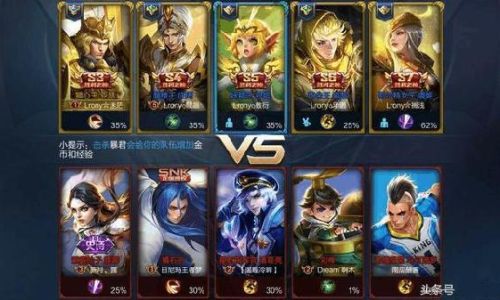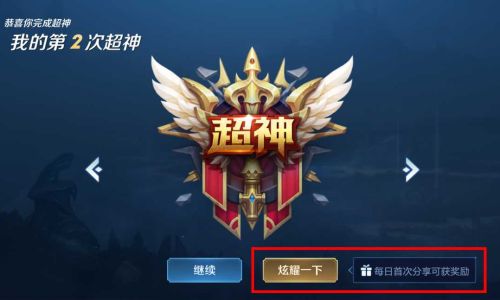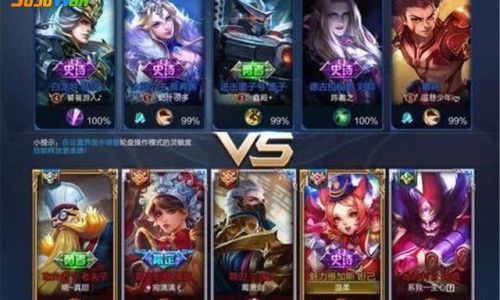In the vast digital realm of “Honor of Kings,” a game that has captivated millions worldwide with its intricate character designs, strategic gameplay, and immersive battlefields, the concept of a “correct” or “successful” match often eludes easy definition. This game, a popular mobile multiplayer online battle arena (MOBA) title, pits two teams of five players against each other in a quest for victory through domination of an ancient land known as the “King’s Road.” To delve into what constitutes a well-played match in “Honor of Kings,” we must explore the intricate interplay between individual skill, team coordination, strategy, and the ever-evolving meta-game dynamics.
Individual Skill: The Foundation of Every Match
At the core of any successful match lies the individual prowess of each player. This encompasses not just mechanical skill, such as precise timing with abilities and movements, but also an understanding of character mechanics and their unique strengths and weaknesses. A player who masters their chosen hero’s abilities, knows when to use them, and can anticipate enemy movements is a force to be reckoned with. Moreover, micro-management skills like last-second dodges, precise aim during team fights, and efficient farming (earning experience and gold) are crucial for maintaining an advantage throughout the game.

However, individual skill is not solely about being the best solo player; it also involves adapting to the ever-changing battlefield. A player who can read the enemy’s intentions, anticipate their next move, and adjust their strategy accordingly demonstrates a level of mastery that elevates their play beyond mere technical proficiency.
Team Coordination: The Tapestry of Tactics
In “Honor of Kings,” team coordination is the thread that weaves together individual brilliance into a cohesive force. Effective communication is paramount, with pings, voice chat, and pre-game plans serving as the backbone for coordinated ganks (ambushes), objective control (such as capturing towers or destroying enemy jungle camps), and strategic retreats. A team that can communicate effectively can outmaneuver even the most skilled opponents by executing complex plays like coordinated ultimates or perfectly timed dives onto low-health targets.
Moreover, understanding each member’s role within the team—whether it be a tank to absorb damage, a mage to deal area-of-effect damage, or a marksman to provide sustained damage from a safe distance—and playing to those strengths is vital. A well-orchestrated team can turn the tide of a battle simply by executing a well-timed push or defending against an invasion with impeccable timing and coordination.
Strategy and Tactics: The Art of Outwitting

Strategy in “Honor of Kings” extends beyond the conventional MOBA norms, incorporating elements of map control, objective prioritization, and counter-strategy. Map awareness is paramount; knowing where your teammates are at all times and how to exploit enemy positions is key to maintaining control over key areas like the jungle or lanes. Effective use of vision wards (non-visible traps that reveal enemy movements) and strategic placement of turrets can significantly alter the course of a match.
Tactical decisions such as when to engage in a team fight versus when to retreat for safer farming or to secure an objective are crucial. A match won through meticulous planning and execution often demonstrates a deep understanding of the game’s mechanics and a willingness to adapt to changing circumstances. This includes recognizing when to deviate from the standard “farm-and-push” strategy and employ unconventional tactics like baiting enemies into traps or exploiting their overconfidence.
Meta-Game Dynamics: The Ever-Evolving Landscape
The meta-game in “Honor of Kings” refers to the broader trends and strategies that emerge over time as players experiment with different builds, heroes, and playstyles. Understanding these dynamics is crucial for success as they dictate which heroes are currently viable for certain roles, what items are most effective in certain situations, and even how maps are played differently based on current community preferences.
Keeping up with the meta requires not only playing frequently but also engaging with community discussions, watching professional matches for inspiration, and experimenting with new strategies yourself. A match played in sync with the current meta is likely to be more successful than one that ignores these trends, as it allows for more efficient use of resources and counters against common enemy strategies. However, being able to break the meta or surprise opponents with unconventional picks or strategies can also lead to unexpected victories.

Conclusion: The Holistic View of a Correct Match
In conclusion, what constitutes a correct or successful match in “Honor of






